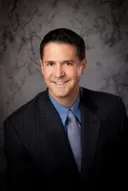4 Signs You Are Burning Out

tunedin123/123RF.com
As I lay there awaiting my shock, the doctors milled in and out of my room over the course of several hours. It was a normal but hectic morning in the emergency department with ambulances and code blues pulling my doctor away.
Before pushing the Propofol and completing my cardioversion, the doctor flatly stated something I'd heard many times before. With a certain look in her eyes, she shared a personal revelation. After several years of this frenetic pace, she no longer wanted to practice medicine and wanted a way out.
I witnessed this same look in the mirror a handful of years ago. In retrospect, I ignored all the warning signs and plowed ahead to the point of no return. While I'm happy and fulfilled in my current medical roles, a part of me still wonders, what if?
I wanted to share a few subtle signs of burnout that can change the trajectory of a medical career. With increased workload, requirements for electronic health record documentation, system inefficiencies and the normal day-to-day stresses of clinical practice, it is easy to see why a life in medicine has taken its toll on many physicians.
Unexplained Anxiety or Nausea
While excitement over an upcoming presentation or sporting competition signals a sense of readiness and anticipation, the same cannot be said for clinical practice. I have heard numerous "recovering" physicians relate how common these feelings are when burnout takes over. Some report an ongoing sense of nausea when driving by a former place of work. The emotional aspect of burnout often manifests as physical symptoms. Physicians are guilty of ignoring their own health and pushing forward despite fatigue, physical symptoms, and mental distress.
Pessimism
When negativity takes over and pushes out a sense of optimism, life and clinical practice become sour. Normally upbeat and positive doctors begin to see only thorns among the roses. Family and friends are the first to notice this change but often are reluctant to mention it or just chalk it up to stress and the busy work life of a physician. When in doubt, just ask. A spouse or true friend will plainly tell you that you are no longer fun to be around.
Boredom and Stagnation.
Am I making any difference? Why am I even doing this when my patients refuse to change their lifestyles or exercise?
These feelings can lead to a variety of medical errors and premature closure. Boredom pulls attention away from critical pieces of information and the opportunity to glean diagnostic gems from the history is lost.
Medicine continues to evolve at a rapid clip, and without excitement and interest, the burned out clinician falls behind and robs the patient of new or novel therapeutic options.
Friday Night Blues
While Sunday night blues are common in the 9-5 world many live in, the varied schedules physicians work disrupt all aspects of personal life.
I noted a sense of dread seeping in days ahead of a scheduled string of ED shifts. Although I had a fun three day weekend ahead with my children, I already felt despair creeping in due to a Monday night shift in the ED.
Simple Mistakes
Burnout robs concentration, and simple errors are often the result. Combine fatigue, anxiety, and poor sleep, and a perfect storm develops. Simple mistakes and decision fatigue should serve as warnings of a brewing problem.
Current data notes the rate of physician burnout of over 50%, depending on the specialty. This was not something talked about during residency nor freely admitted by more senior colleagues. With a keen eye and a bit of distance, anyone could pick up the subtle changes warning of a more serious problem. As the physician shortage increases, I watched my own personal physician hang up his stethoscope. Physician groups, leaders, and healthcare organizations cannot ignore this data if they wish to maintain a healthy, engaged and happy physician workforce.
Related Posts
